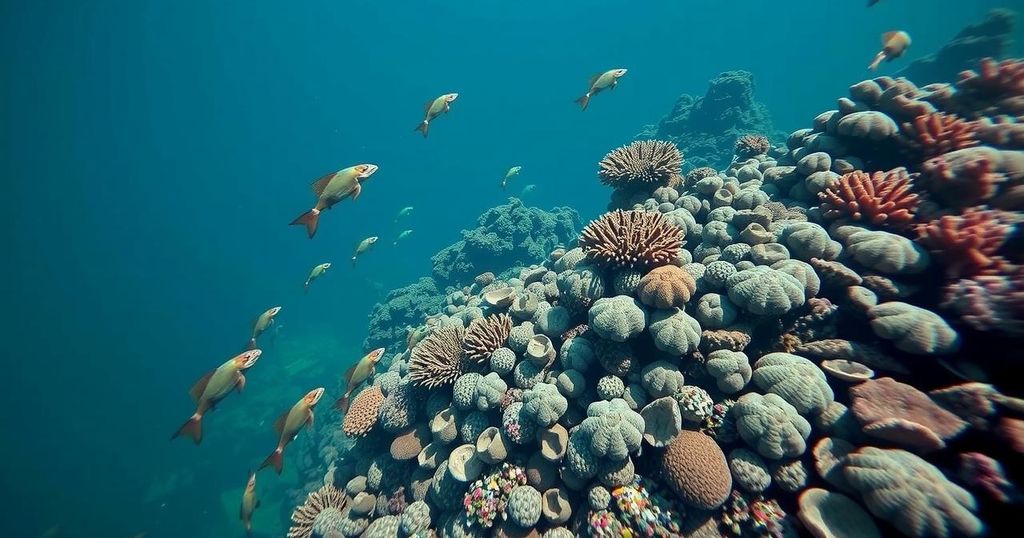Urgent Action Required as Fourth Mass Coral Bleaching Dwarfs Global Reefs
The United Nations has called for urgent action to protect coral reefs, with 77% currently affected by bleaching due to climate change. An emergency session was held at the U.N. biodiversity summit in response to these alarming findings, resulting in new pledges for coral reef funding. The importance of these ecosystems, which provide food security and support marine life, is emphasized as global leaders are urged to take immediate action.
The United Nations, alongside scientists and government representatives, convened an urgent emergency session on Wednesday in response to the alarming state of the world’s coral reefs. This session coincided with the ongoing U.N. biodiversity summit, COP16, in Cali, Colombia. Recent research indicates that 77% of global coral reefs are experiencing bleaching due primarily to rising ocean temperatures, attributed to human-induced climate change. This fourth mass bleaching event is unprecedented, encompassing both hemispheres and resulting in significant ecological damage.
Coral reefs are crucial ecosystems, supporting over 25% of marine biodiversity and serving as a vital resource for nearly a billion people worldwide. These reefs are not only essential for food security and coastal protection but also contribute to livelihoods. The U.N. Capital Development Fund established a coral reef funding initiative in 2020, with a goal of raising $3 billion by 2030 for conservation efforts. This recent emergency session emphasizes the urgent need for increased financial commitments to safeguard these ecosystems amidst escalating threats from climate change.
The call for action during the U.N. emergency session underscores the critical state of the world’s coral reefs, which are facing unprecedented challenges from climate change and human activity. The pledges made by several countries, totaling around $30 million, represent a positive step toward addressing this crisis. However, with the next U.N. ocean conference set for 2024, there is a pressing need for further commitments to ensure the survival of these vital ecosystems.
Original Source: www.voanews.com




Post Comment